Mikhail Lermontov. Combat officer. Part of 5. Final
After the end of hostilities in Chechnya, 1840, due to the onset of winter cold, Lermontov left for Pyatigorsk for some time, and from there, at the insistence of the authorities and the emperor’s personal demand to “be in the regiment, there was” he went to the village of Ivanovskaya (east of Temryuk and Slavyansk-na-Kubani ). Lermontov already then realized more clearly that the imperial court was ready to rot him in the barracks. Even the controversial "freedom" to fight in mountain battles in Chechnya, they are trying to take away from him. All this affected the mental health of Michael.
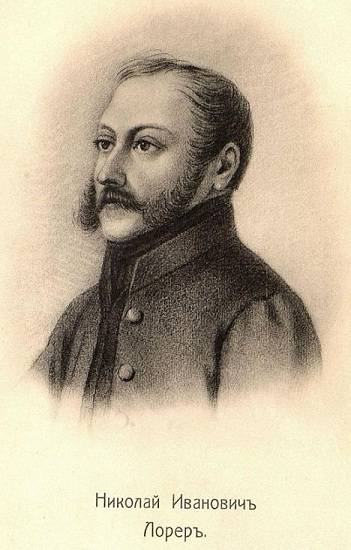
This is how Nikolai Ivanovich Lorer, a member of General Velyaminov’s glorious military campaigns, describes the meeting with him:
Later they become friends - such paradoxes are more likely to be for the Caucasus. In the barracks of the regiment Lermontov slowly began to sink into the oppressive routine of the military life of the provincial outpost of the immense empire. Along with all the officers, he was on duty at the headquarters of the regiment, conducted inquiries and wrote reports. In order to somehow diversify the routine, Lermontov even noted a humorous poem written in defense of the officers, who complained about the village administration for their love to visit friends in the garden fence, so as not to drown in the mud of the village roads.
Despite the fact that the poem was instantly loved by his colleagues, the relations between the officers and Lermontov were strained. His resentment for well-deserved orders, which he will never receive, for his hatred of his person on the part of the imperial court, turned into sharp phrases, secretiveness and general nastiness. However, Lermontov will meet the last New Year of his life in the circle of Tengin officers of the Ivanovo stanitsa. At the same time, Konstantin Danzas, exiled to the Caucasus for participating in the duel of Pushkin as a second by Alexander Sergeevich, got Lermontov to be assigned to one of the mouths of his battalion. 31 December 1840 of the year by order of the regiment No. 365 Mikhail Yuryevich was enlisted in the 12 th musketeer company.
Finally, on January 14, Lermontov received permission to appear for a while in St. Petersburg. The poet himself believed that this permission was given to him thanks to the intercession of his grandmother. True, Elizabeth Alekseevna Arsenieva begged forgiveness to her grandson, but the emperor did not give her consent. Most likely, Lermontov received permission to arrive in the capital thanks to a number of factors: here both the grandmother's petition, and the endless representations of the Caucasian command for awarding Michael, and the poet's literary fame, which continued to grow.
Here is how Lermontov himself described his misadventures in Petersburg in his letter to Dmitry Sergeyevich Bibikov, a workmate in the Caucasus, with whom he lived in Stavropol under the same roof (reduced):
In St. Petersburg, Lermontov eventually stayed longer than what was permitted — not two, but three months. Perhaps, judging by the letter, he managed to achieve his return to Chechnya. Thus, on May 9, the lieutenant arrived in Stavropol. Here it was officially confirmed that Mikhail was sent to the left flank of the Caucasian line, i.e. the poet returns to General Grabbe. And, God sees, if he came to Grabbe, joining the ranks of another military expedition, according to the paradoxical laws of the Caucasus, he would have a better chance of surviving the 1841 year. But everything turned out differently ...
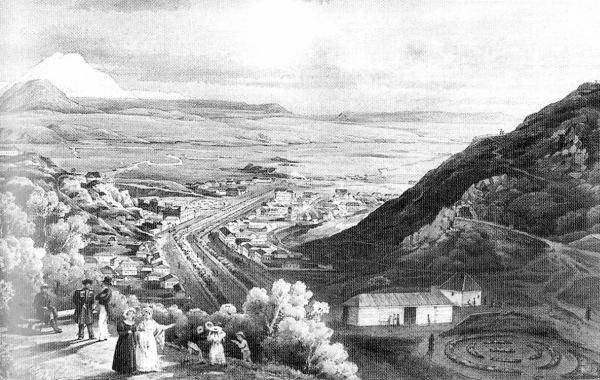
The road to Pyatigorsk
On the way to the headquarters of General Grabbe, Lermontov became seriously ill with fever. The doctors who examined the lieutenant insisted that he stay for a while in Pyatigorsk. The command gave its permission to delay the officer for medical reasons. Pyatigorsk physicians were even more categorical in their conclusions after examining Mikhail Yuryevich - “obsessed with scrofulous thinness and thinness, accompanied by swelling of the tongue and broken legs”. Despite twenty hot mineral baths and other things, Lermontov didn’t get better. Doctors stated: "The suspension of treatment and adverse conditions of bivouac life could have detrimental health effects."
Lermontov stayed in Pyatigorsk for the summer. Taking advantage of a sudden rest, Mikhail Yuryevich plunged into poetry. In Pyatigorsk such poems as “Tamara”, “Dream”, “Sea Princess”, “The Prophet”, “I went out alone to the road” and others saw the light of day. Despite the fact that Lermontov is increasingly appearing in society, from the verses written during this period it is clear that he is extraordinarily alone. In addition, his wit did not fade away. Thus, the link, which had no end, at times permissible bravado and sharpness, loneliness - all this led to a tragic finale.
Nikolai Lorer described the future rival Lermontov in a duel - the former major Nikolai Martynov:
Dressed in, and perhaps damned by genius and keen flair, Lermontov, who was also a brilliant military officer, could not pass by such a dandy, without feeling a bit of fake. Moreover, Mikhail Yuryevich himself commanded the “hunting” team, which also included the Highlanders, in order to have the right to a more personal look at such posturing.
Pyatigorsk in the XIX century
Thus, at a party in the house of the Versilins, Lermontov again began to jest about the look of Martynov, mockingly calling him “homme à poignard”, i.e. "Man with a dagger." Martynov, in fact, always carried a Caucasian Kama with him in his belt, be it a ball or a dinner. Fighting weapon in such a situation it seemed like a theatrical dummy, so such caustic remarks finally brought Martynov out of himself. The former major threw a phrase that he would find a way to silence the lieutenant. To this, Mikhail Yuryevich calmly replied that he should act better rather than shake the air, hinting also that he never ran from duels.
As a result, in the evening of July 15 (according to the old style) of the year 1841, at the foot of Mashuk mountain, Lermontov and Martynov met. The shot of the former major turned out to be accurate. The bullet went right through the heart, instantly killing the great poet.
The author will not delve into the details of the duel itself. After all, even the dates of the fight in different sources vary: Lorer indicates July 17, the Tengin Regiment in the Caucasus edition does indicate the month of June, etc. However, this does not change the essence. Russia's greatest poet did not fall in battle, but because of the “shame of petty offenses” and the cold indifference and even the vengefulness of the imperial court. This is confirmed by all that happened in Pyatigorsk and high society after the death of Lermontov.
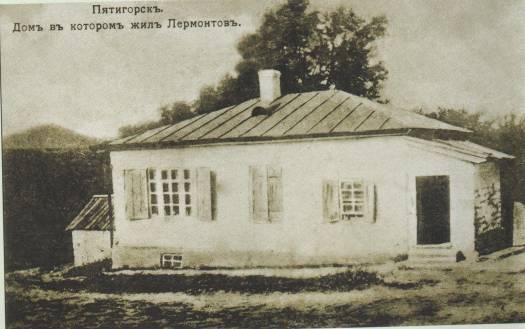
This is how Nikolai Lorer recalled that tragic day when he learned about the death of the poet:
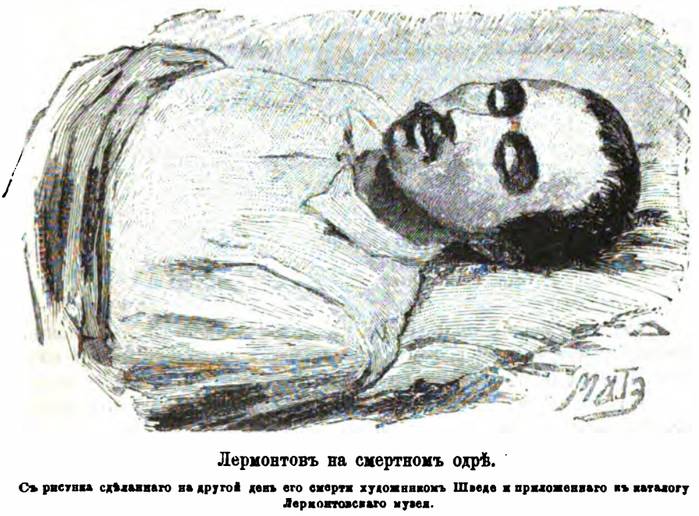
Two days after the death of Lermontov, at the confluence of an unprecedented crowd in Pyatigorsk, a funeral began. At that moment, representatives of all the regiments were present in the city, in which Mikhail Yuryevich happened to serve or be “in business”. His coffin was carried by Nikolai Lorer from the “Tengians”, Alexander Tiran from the Life Guards Hussar Regiment, Alexander Arnoldi from the Grodno Regiment, and Sergey Bezobrazov from the Nizhny Novgorod Dragoon. They buried Lermontov in the foothills of Mashuk, dressed in the uniform of an officer of the Tenginsky regiment. Later, however, the dust at the request of the grandmother was reburied in Tarkhany.
Two weeks later, as if an evil mockery of the bureaucracy’s red tape, a notice came from St. Petersburg that the emperor refused to give Lermontov the award of the Order of St. Stanislaus 3 degree for the courage he showed in the 40 expedition and for the battle with Valerik.
The first grave of Lermontov in Pyatigorsk
Even more offensive fact was the "punishment" of participants in the duel. At that time, for participating in such a duel, especially entailing death, was punished extremely harshly. For example, Danzas, who was just a second in a duel, was sentenced to death by the first instance, and only later this measure was replaced with a Caucasian exile, in which he showed himself to be an excellent officer and honored the honor of his friend Pushkin until the end of his life. What was waiting for Martynov and the seconds? Actually nothing.
Nikolai Martynov, who was supposed to be executed by law, was demoted, sentenced to 3-month arrest in the guardhouse and exiled ... to Kiev. A couple of years later, this dandy married a pretty Polish girl and moved to his own house in Moscow, as if nothing had happened. They decided not to punish the seconds at all, having considered that the time they spent under arrest in the guardhouse would be considered a “punishment”. This, apparently, was the result of the intervention of the sovereign, whose phrase about the poet "there he is and the road" quickly became known among the people.
Mount Mashuk
Thus ended the glorious service of the great poet and officer Mikhail Lermontov. And now, few people know about the battle of Valerik, even less know about the brilliant flanking maneuver of the "Lermontov detachment" of cavalry in the Goytin forest and a desperate attack near the aul of Aldy. It would not be an exaggeration to think that Mikhail Yuryevich is one of the undervalued geniuses of Russian poetry and an absolutely forgotten Caucasian officer.
- Eastern wind
- Mikhail Lermontov. Combat officer. Part of 4
Mikhail Lermontov. Combat officer. Part of 3
Mikhail Lermontov. Combat officer. Part of 2
Mikhail Lermontov. Combat officer. Part of 1
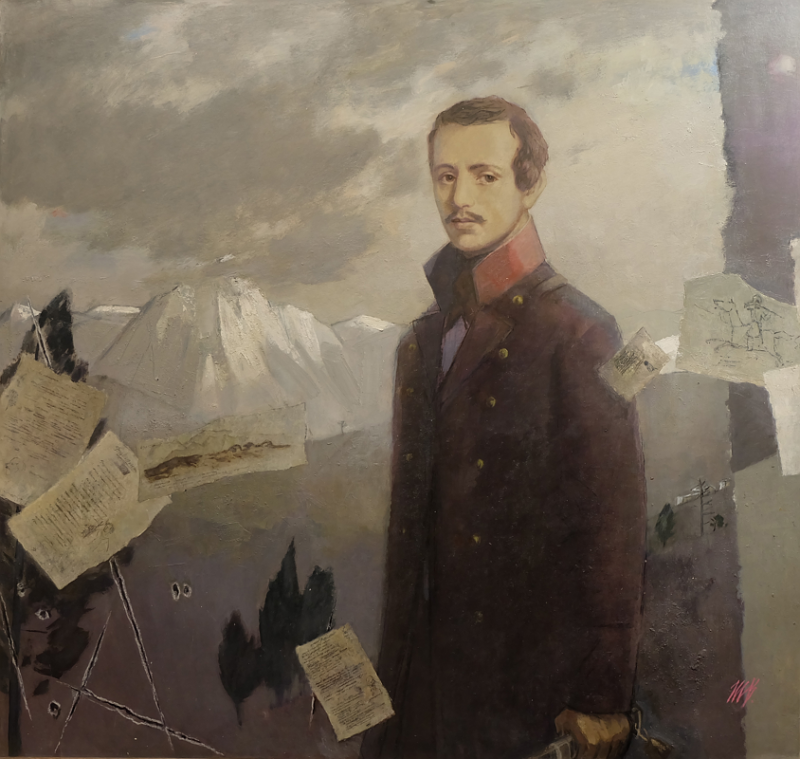
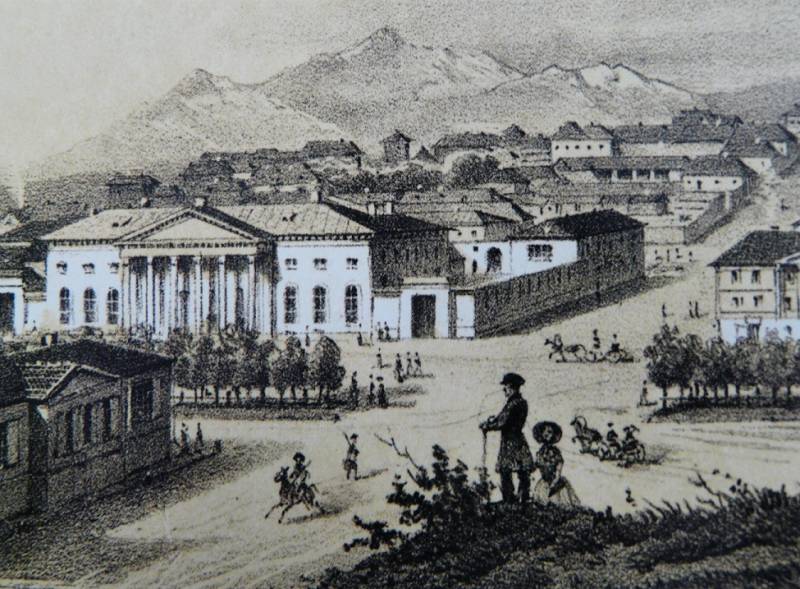
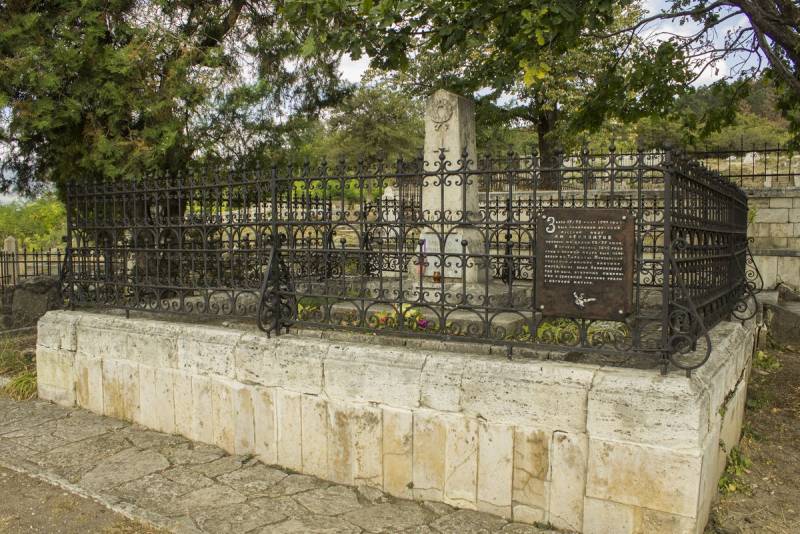

Information